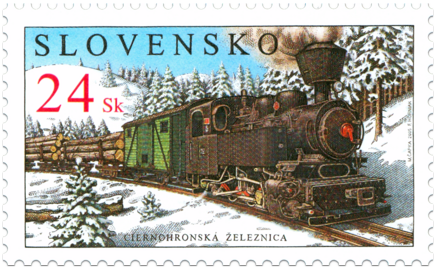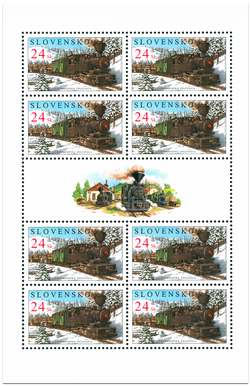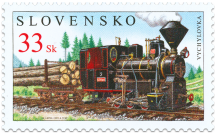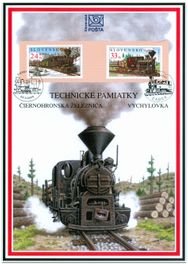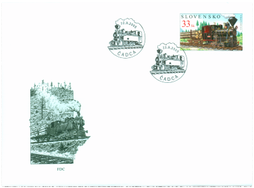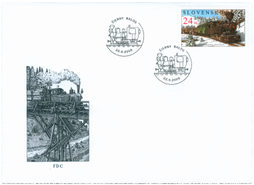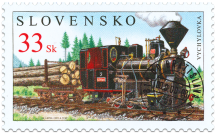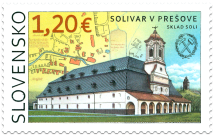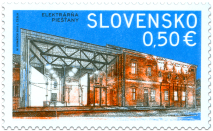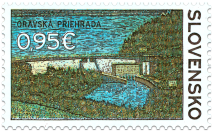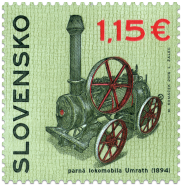This product is not for sale
This product is part of the following products
362 Date of issue
22.09.2005 Face value
24.00 Sk
© Slovak post, 2005 At the end of the 19th century, the rich forest resources around Čierny Hron and the related exploitation and processing of wood caused problems with the transportation of felled wood to where it was processed. At that time, however, the capacity as well as the quality of wood transportation via water ways did not meet the needs of the expanding industry in the country. Quality and continuous transportation had to be ensured year-round. The construction of the Čierny Hron forest railway, with a gauge of 760 mm, began in 1908, whilst its first 11 km long section was completed in the same year. Other forest railway branch lines were also gradually built with the help of First World War prisoners, opening up the majority of valleys around the Čierny Hron basin. The total length of the railway was 132 km, whilst some of its branch lines reached the mysterious Dobročský primeval forest below the massive Klenovský Vepor. A transhipping centre from the Čierny Hron forest railway to the state railway system was established at Hronec station. Steam-driven saw-mills supplied by the forest railway operated in Čierny Balog and Štiavnička. At the time of the greatest removal of wood, during disasters in 1927 – 1929, about 260,000 m3 of wood was transported yearly, and during 1953 – 1955 as much as 300,000 m3 of wood. As many as seven steam engines of various constructions were running daily on the railway. These were later joined by 3 RÁBA diesel-hydraulic engines from Hungary. Apart from freight transport, the railway also ensured the transportation of passengers, whilst its fleet included timber, decking, service, personnel, and special carriages. The railway was operated by about 115 employees, and the daily number of passengers was about 200 – 250 persons. In the second half of the last century, the growth of automobile transport resulted in the gradual decline of the forest railways. In 1982, the operation was closed on the remaining 36 km of railway track, which was the last operating forest railway at that time in Slovakia. In the same year, this forest railway joined the Central State List of Cultural Monuments. Jozef Strišš
Show less© 2024 POFIS - Postal philatelic service. All rights reserved

